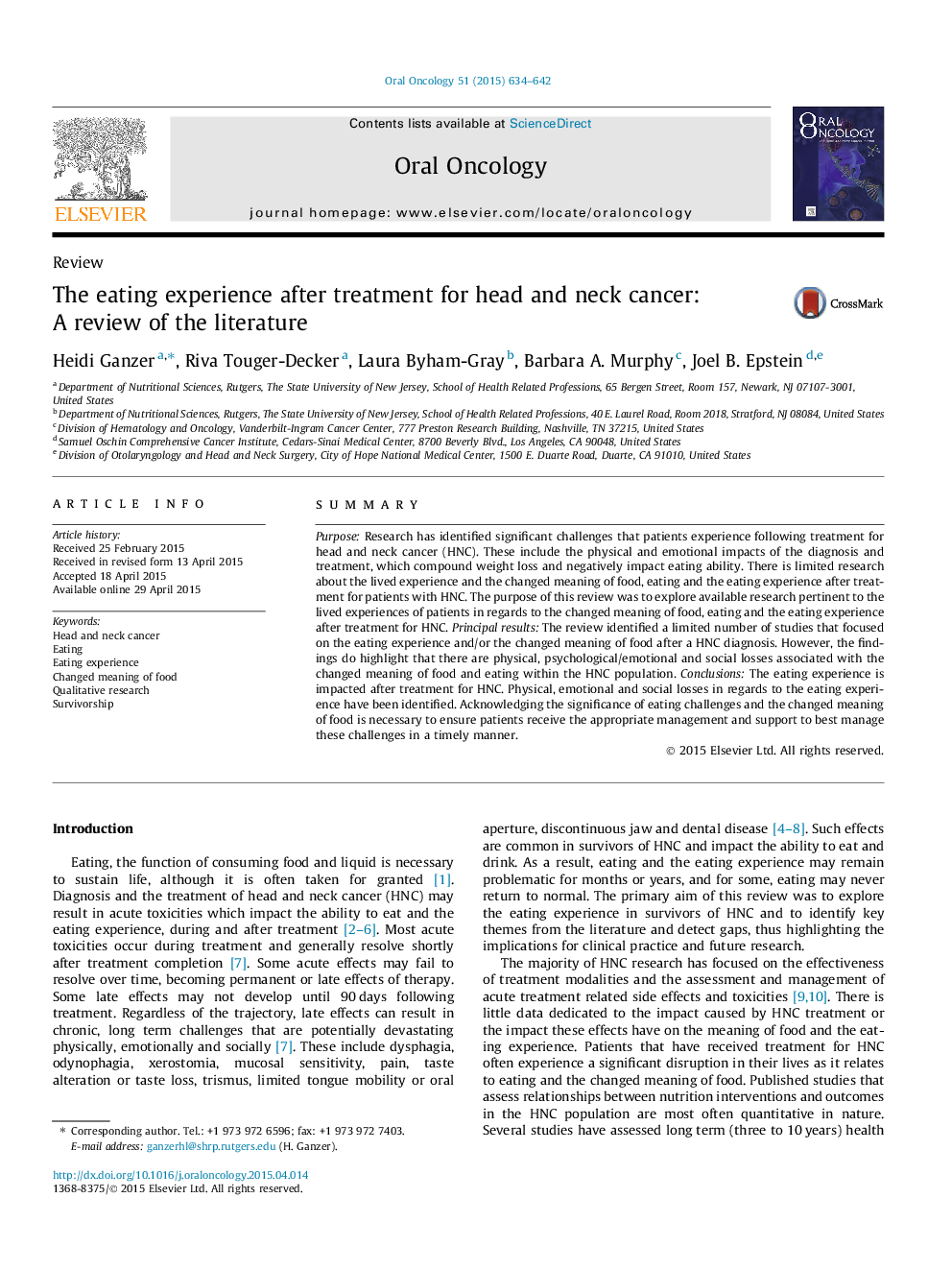| Article ID | Journal | Published Year | Pages | File Type |
|---|---|---|---|---|
| 3163877 | Oral Oncology | 2015 | 9 Pages |
•Treatment for HNC may result in long term challenges that impact eating.•Eating may remain problematic for months or years, or it may never return to normal.•Patients may fail to recognize functional losses that develop gradually over time.•Recognition of the significance of eating problems post treatment is necessary.•Standard of care should explore diet adequacy and altered aspects of eating.
SummaryPurpose: Research has identified significant challenges that patients experience following treatment for head and neck cancer (HNC). These include the physical and emotional impacts of the diagnosis and treatment, which compound weight loss and negatively impact eating ability. There is limited research about the lived experience and the changed meaning of food, eating and the eating experience after treatment for patients with HNC. The purpose of this review was to explore available research pertinent to the lived experiences of patients in regards to the changed meaning of food, eating and the eating experience after treatment for HNC. Principal results: The review identified a limited number of studies that focused on the eating experience and/or the changed meaning of food after a HNC diagnosis. However, the findings do highlight that there are physical, psychological/emotional and social losses associated with the changed meaning of food and eating within the HNC population. Conclusions: The eating experience is impacted after treatment for HNC. Physical, emotional and social losses in regards to the eating experience have been identified. Acknowledging the significance of eating challenges and the changed meaning of food is necessary to ensure patients receive the appropriate management and support to best manage these challenges in a timely manner.
